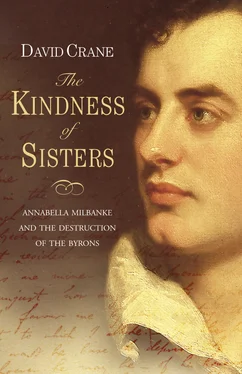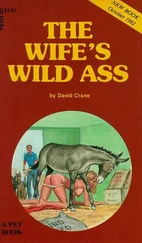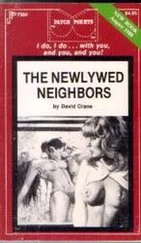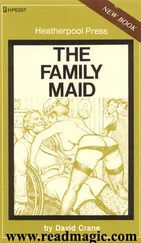She had, in fact, her own idea for Byron’s wife, Lady Charlotte Leveson-Gower, but since the previous autumn an alarmed Lady Melbourne had been keeping a far more serious candidate waiting in the wings. For a time during his Eywood idyll there had been a slight froideur between her and Byron, but one of the great secrets of Lady Melbourne’s influence was a talent for absorbing slights and from the first threatening appearance of Augusta in Byron’s life she had been as ready to sacrifice her niece for his safety as she had been a year earlier for her own dynastic needs.
There are moments in the relationship of Byron and Annabella Milbanke that tilt the sympathies violently in one direction or another and the intervention of Lady Melbourne is one of these. There is no need to sentimentalise the broadly ‘Austenish’attitudes to marriage of Annabella herself, but the machinations of her aunt over the next fifteen months belong to another league altogether, raising the cynicism of the Regency marriage market to levels for which Glenarvon or Les Liaisons Dangereuses – the constant point of reference among her family for Lady Melbourne – provide no real preparation.
Lady Melbourne’s letters to Byron were always cooler, more discreetly circumspect, than his to her, and so it is difficult to be sure of her motives in this matter. It is clear that she was both genuinely fond of Byron and alarmed for him, but for a woman who only had to see a happy marriage, it was said, to want to destroy it, the appeal of the match must have been as much aesthetic as practical – the pure unalloyed pleasure of uniting two people so symmetrically ill-suited as Annabella and Byron, ‘the spoilt child of seclusion, restraint and parental idolatry’ and ‘the spoilt child of genius, passion, and the world,’ 79 as Mrs Stowe later described them.
Lady Melbourne’s performance was one of dazzling cynicism as she brought them together again, interpreting one to the other, revealing or concealing as needed, playing equally on the weaknesses of Byron and Annabella until each imagined the initiative their own. There was a streak of passivity in Byron’s nature that had always made him putty in Lady Melbourne’s hands, but with her romantic high-mindedness and naivety her niece proved no less easy to manage.
After almost a year in which she had time to reflect on the loneliness of moral superiority and the dullness of domestic life without the frisson of Byron’s attentions, Annabella was ripe for persuasion. ‘I have received from Lady Melbourne an assurance of the satisfaction you feel in being remembered with interest by me,’ her first direct letter to him had begun on cue on 22 August 1813 – midway between the beginning of his affair with Augusta and his half-hearted pursuit of Lady Frances Webster,
Let me fully explain this interest, with the hope that the consciousness of possessing a friend whom neither Time nor Absence can estrange may impart some soothing feeling to your retrospective views. 80
One of the supreme temptations of the novel, E.M. Forster once confessed, is the desire to give characters the happiness that ‘real life’ denies them, and this first letter of Annabella’s can stir the same kind of emotions. She was so much in the habit of regarding herself in fictional terms that it would be hard not to follow suit anyway, but the cruelty of her fate now was to find herself less the heroine of her own shaping than the dupe of a Leclos plot over which she had no control. ‘You have remarked the serenity of my countenance,’ she went on,
but mine is not the serenity of one who is a stranger to care, nor are the prospects of my future untroubled. It is my nature to feel long, deeply, and secretly, and the strongest affections of my heart are without hope. I disclose to you what I conceal even from those who have most claim to my confidence, because it will be the surest basis of that unreserved friendship which I wish to establish between us … Early in our acquaintance, when I was far from supposing myself preferred by you, I studied your character. I felt for you, and I often felt with you. You were, as I conceived, in a desolate position, surrounded by admirers who could not value you, and by friends to whom you were not dear. You were either flattered or persecuted. How often have I wished that the State of Society would have allowed me to offer you my sentiments without restraint. 81
With its oblique and frustrated demand to be heard this might anticipate the great climax of Persuasion, but Annabella was no more an Anne Elliot than Byron was Captain Wentworth. From her earliest youth she had dramatised herself as the self-sacrificing heroine of her historical daydreams, and the girl who had stood by Howard in her fantasies now abandoned herself to the role of Byron’s redeemer, uniting herself with him in an imaginary communion of souls that transcended time, place or vulgar self-interest. ‘Surely the Heaven-born genius without Heavenly grace must make a Christian clasp the blessing with greater reverence & love, mingled with a sorrow as a Christian that it is not shared’, she wrote to her old confidante Lady Gosford in her most ecstatic vein,
Should it ever happen that he & I ever offer up a heartfelt worship together – I mean in a sacred spot – my worship will then be most worthy of the spirit to whom it ascends. It will glow with all the devout and grateful joy which mortal breast can contain. It is a thought too dear to be indulged – not dear for his sake, but for the sake of man, my brother man, whomever he be – & for any poor, unknown tenant of this earth I believe I should feel the same. It is not the poet – it is the immortal soul lost or saved. 82
In one of her ‘Auto-descriptions,’ Annabella confessed this inability to distinguish fiction from fact, but what had been harmless enough in the child was profoundly dangerous in the adult. In the early days of their acquaintance she had self-consciously distanced herself from the ‘Byromania’ of London, but as she realised with something like panic how much she had lost in turning him down, she set about desperately trying to recreate Byron in an image she could square with her conscience, blindly moving with every exchange of letters towards marriage with a man she scarcely knew. ‘I entreat you then to observe the more consistent principles of unwearied benevolence’, she wrote to Byron in the language of a tabloid astrologer,
No longer suffer yourself to be the slave of the moment, nor trust your noble impulses to the chances of Life. Have an object that will permanently occupy your feelings & exercise your reason. Do good. Your powers peculiarly qualify you for performing those duties with success, and may you experience the sacred pleasure of having them dwell in your heart! 83
It is clear from Byron’s reply that Annabella’s tone had startled him, but if he had to sacrifice Augusta, it hardly seemed to matter whom he married. ‘To the part of your letter regarding myself’, he wrote back, having first assured her that she was the only person with whom he had ever contemplated marriage,
I could say much – but I must be brief – if you hear ill of me it is probably not untrue though perhaps exaggerated – on any point in which you may honour me with an interest I shall be glad to satisfy you – to confess the truth or refute the calumny. – I must be candid with you on the score of Friendship – it is a feeling towards you with which I cannot trust myself – I doubt whether I could help loving you – 84
There was not a scrap of hypocrisy about Byron, but what was almost as hazardous as he renewed his interest in Lady Melbourne’s niece, was the artist’s ability to conjure imagined feeling out of the depths of genuine experience. He would have found it impossible to preserve his illusions about a future with Anna-bella had he seen anything of her, but in the safety of letters he could indulge in an emotional transfer that enabled him to create an idea of her and himself that could sustain him through the travesty of an epistolary courtship.
Читать дальше










